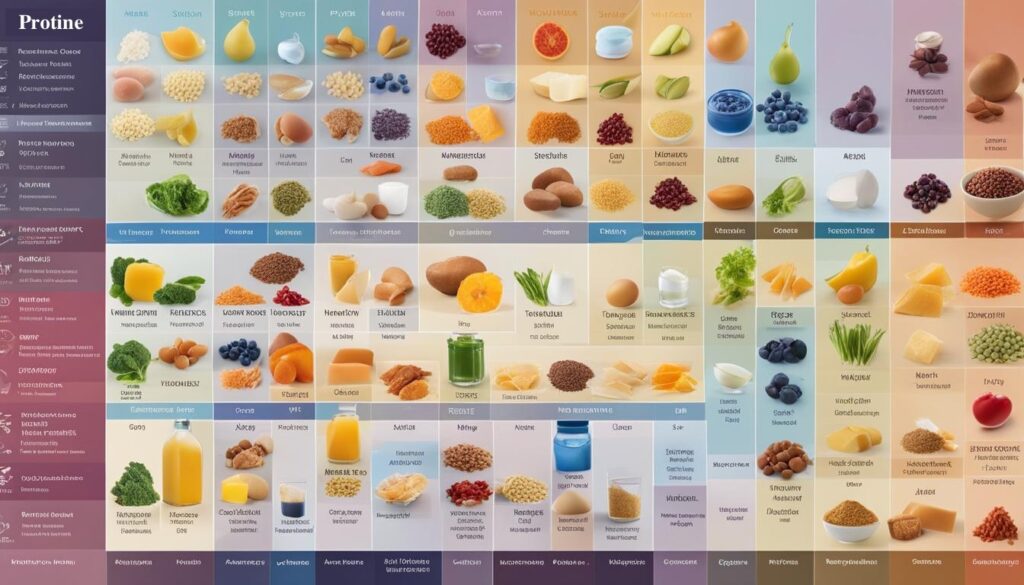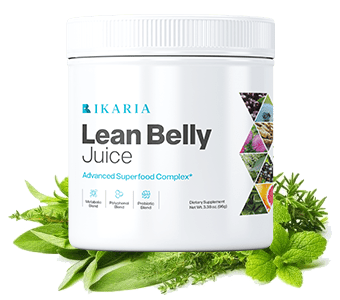
The human body is an intricate machine that relies on essential amino acids for virtually every process involving protein synthesis and muscle health. These organic compounds are the quintessential building blocks of muscle tissue, charged with numerous responsibilities from structure to function. Unlike fats and carbohydrates, amino acids have a unique role, particularly in fostering growth and repair within the body.
However, not all amino acids can be naturally produced by the body; hence, certain amino acids must be supplied through dietary protein. These components are commonly referred to as `essential nutrients`; without them, our bodies would be unable to maintain the physiological process needed for survival. For those wishing to optimize their health, getting these nutrients from food sources versus amino acid supplements can make a significant impact on overall wellbeing.
Recognizing the paramount significance of dietary amino acids, it is crucial to incorporate a variety of complete protein options in our daily intake. These complete proteins provide the full spectrum of essential amino acids, underpinning a myriad of bodily functions and supporting vigorous health. Whether you’re an athlete, a busy professional, or simply health-conscious, understanding the role and benefits of these essential compounds is indispensable for maintaining an optimal balance in your nutritional intake.
Key Takeaways
- Essential amino acids are vital for protein synthesis and forming muscle tissue.
- The body cannot produce certain amino acids, thus they must be obtained through dietary proteins.
- A diet rich in complete proteins is crucial for receiving all nine essential amino acids.
- Animal-based products and certain plant foods act as primary food sources for these nutrients.
- Amino acid supplements can serve as adjuncts to diet, especially when specific nutritional needs arise.
- Understanding the benefits and sources of essential amino acids can significantly contribute to one’s overall health.
The Role of Essential Amino Acids in the Body
Within the human body, essential amino acids are not merely constituents for the architecture of our muscles but are foundational elements that govern critical biochemical processes. Understanding the intricacies of these amino acids helps underline the vitality of incorporating high-quality protein in our diet—sources that are rich in the amino acid composition our systems cannot synthesize independently.
Building Blocks of Muscles and Tissues
Essential amino acids, often described as the building blocks of protein, are the cornerstone of muscle protein creation and regeneration. Among these, the branched-chain amino acids—leucine, isoleucine, and valine—are especially notable for their direct role in constructing muscle protein fibers. Regular intake of these amino acids is critical for athletes and individuals engaged in physical activities to meet their amino acid needs and optimize muscular health.
Key Functions in Metabolism and Nutrient Synthesis
The role of essential amino acids transcends beyond muscle maintenance. They are indispensable for various metabolic pathways, aiding in the synthesis of hormones and neurotransmitters. For instance, sulfur-containing amino acids play a significant part in detoxification processes and metabolic function. These aspects highlight why these nutrients are regarded not merely as the building blocks of protein, but as pivotal players in our body’s chemical symphony.
Regulation of Immune and Digestive Systems
The regulation of the immune and digestive systems is another noteworthy function of essential amino acids. Stress and illness often elevate the demand for certain amino acids, rendering them conditionally essential amino acids during these times. A consistent supply of essential amino acids is thus imperative for fortifying the body’s defenses and ensuring the smooth operation of our digestive apparatus.
| Amino Acid | Function | Source |
|---|---|---|
| Leucine | Muscle Protein Synthesis | Meat, Dairy, Legumes |
| Isoleucine | Energy Regulation, Hemoglobin Production | Nuts, Seeds, Whole Grains |
| Valine | Muscle Metabolism, Tissue Repair | Meat, Soy, Cheese |
| Methionine | Detoxification, Metabolic Function | Eggs, Sesame Seeds, Brazil Nuts |
| Phenylalanine | Neurotransmitter Synthesis | Meat, Fish, Dairy |
Essential amino acids, particularly the indispensable amino acids, must be obtained from the diet to support these extensive bodily functions and processes. They serve as a testament to the complexities of our bodies and the dietary requirements necessary to sustain optimum health.
Complete vs. Incomplete Proteins: Sources of Essential Amino Acids
Within the sphere of nutrition science, the conversation often focuses on protein quality and understanding the key differences between complete and incomplete proteins. Complete proteins are revered for their ability to contain all nine essential amino acids, which are indispensable for human health. These high-quality proteins are primarily sourced from animal products, including beef, poultry, eggs, and dairy. However, the realm of food and agriculture has broadened to include plant-based alternatives such as quinoa and soy, which also boast a complete pattern of amino acids.

On the flip side, incomplete protein sources lack one or more of the essential amino acids. These sources, which include beans, nuts, seeds, and grains, are staples in certain diets, particularly those that do not include animal products. For individuals following vegetarian or vegan dietary patterns, it becomes crucial to seek diversity in their protein intake to compensate for any singular protein source deficiencies. This approach ensures a well-rounded amino acid profile through a combination of different food sources.
It is essential for one’s diet to provide a complete profile of essential amino acids, which is why even in plant-based nutrition, combining different food sources is encouraged.
- Animal-based food sources: Beef, poultry, fish, eggs, dairy
- Plant-based complete proteins: Quinoa, buckwheat, hemp seeds, chia seeds
- Plant-based incomplete proteins: Most grains, nuts, legumes, vegetables
The quantifiable protein content within these food items, alongside the pattern of amino acids they provide, forms the foundation for meeting protein and amino acid recommendations set forth by experts in food and agriculture. With a rising global emphasis on health and sustainability, the need to understand and optimize protein intake from various sources has never been more pronounced.
Essential Amino Acids and Physical Wellness
The profound impact of essential amino acids on physical health cannot be overstated. These building blocks are pivotal for anyone aiming to augment muscle growth, enhance muscle recovery, and achieve peak physical condition, especially in fields like bodybuilding. Understanding their multifaceted role sheds light on how amino acid supplementation and dietary choices shape our health and capacity for physical activity.
Impact on Muscle Growth and Repair
Amino acids serve as a cornerstone in the realm of muscle development and restoration. After strenuous exercise, they facilitate repair and fortification of muscle fibers, leading to enhanced strength and size. Essential proteins derived from both food and supplements are vital for these processes. The amino acid industry has catered to this demand, producing sophisticated dietary supplements to optimize muscle repair protocols.
Importance for Athletes and Bodybuilders
Athletes and bodybuilders have long recognized the critical role that amino acids play in achieving competitive advantage and physical prowess. This audience particularly values the importance of amino acid supplementation. Leucine, isoleucine, and valine, known collectively as branched-chain amino acids, are extensively utilized to accelerate recovery and reduce muscle fatigue, enabling more rigorous and frequent training sessions.
Benefits for Overall Health and Disease Prevention
Beyond athletics, essential amino acids contribute to broader aspects of health. They aid in immune system function and metabolic health, making them allies in the prevention of various diseases. Ensuring a steady intake of essential proteins through diet or supplements supports not just the active, but also those seeking wellness in daily life.
| Essential Amino Acid | Role in Muscle Growth | Benefit to Overall Health |
|---|---|---|
| Leucine | Stimulates muscle protein synthesis | Regulates blood sugar levels |
| Isoleucine | Increases endurance and helps repair muscle | Boosts energy and supports the immune system |
| Valine | Promotes muscle recovery and growth | Improves stress response and cognitive function |
| Tryptophan | Contributes to balancing nitrogen levels in the body | Regulates appetite, sleep, and mood |
| Lysine | Important for calcium absorption and collagen formation | Supports bone health and immune response |

Conclusion
The role of essential amino acids in maintaining and promoting overall health cannot be overstated. Integral to the body’s many physiological operations, these amino acids form the cornerstone of muscle health, serving as the critical components for muscle formation and the regulation of vital processes such as metabolism and immune function. A mindful approach to nutrition, which recognizes and incorporates complete proteins containing all nine essential amino acids, is paramount in ensuring the body operates efficiently and effectively.
Moreover, the dietary landscape’s dichotomy of complete versus incomplete proteins necessitates careful meal planning, especially for those following dietary preferences that might restrict access to certain food sources. Individuals may need to complement their intake with a variety of foods or, where diet falls short, look to high-quality dietary supplements to fill the gaps. By doing so, they can secure the benefits associated with a well-rounded profile of amino acids, optimizing muscle repair, growth, and broader health measures.
In essence, a lifestyle invested in consuming a balance of essential amino acids—whether through food or supplements—is a stepping stone toward achieving a healthy, well-functioning body. Embracing a diet rich in these vital nutrients endorses not just muscle prosperity but also contributes to long-term disease prevention and ensures the resilience of overall bodily functions. Thus, taking charge of one’s amino acid intake is a decisive step towards fostering lasting health and wellness.
FAQ
What are essential amino acids and why are they important?
Essential amino acids are a group of nine amino acids that the body cannot synthesize on its own and therefore must be obtained through diet. They are important because they play a critical role in protein synthesis and are necessary for the growth and repair of muscle tissue, as well as other vital bodily functions.
What is the difference between essential and nonessential amino acids?
Essential amino acids cannot be produced by the body and must be obtained through diet, whereas nonessential amino acids can be synthesized by the body. There are also conditionally essential amino acids, which are typically nonessential but may become essential under certain circumstances such as illness or stress.
What foods are considered complete protein sources?
Complete protein sources contain all nine essential amino acids and are usually found in animal products such as meat, fish, poultry, eggs, and dairy. Some plant-based foods like quinoa, buckwheat, soy, and hemp seeds are also complete proteins. Most plant foods are considered incomplete protein sources because they lack one or more essential amino acids.
Why should I consider taking amino acid supplements?
Amino acid supplements might be beneficial for individuals who do not get all the required essential amino acids from their diet. This can include vegetarians, vegans, athletes, bodybuilders, or people with specific dietary restrictions or health conditions that affect nutrient absorption.
Can essential amino acids affect muscle growth and recovery?
Yes, essential amino acids are fundamental for muscle growth and recovery. Branched-chain amino acids, in particular, have a significant role in muscle protein synthesis. Adequate intake is crucial for athletes and bodybuilders to support post-exercise recovery and muscle maintenance.
How can essential amino acids benefit overall health aside from muscle recovery?
Beyond muscle repair, essential amino acids play a role in enzyme production, immune function, hormone synthesis, and neurotransmitter balance. They are essential for maintaining metabolic health and preventing diseases by supporting the body’s physiological processes.
What is a limiting amino acid and how does it affect protein utilization?
A limiting amino acid is the essential amino acid in the shortest supply in relation to the body’s needs. It can limit the body’s ability to build proteins. If a meal is lacking in one of the essential amino acids, then protein synthesis can be hindered until the amino acid is obtained from the diet.
Are there any risks associated with consuming too much protein or amino acids?
Consuming too much protein or amino acids, particularly in supplement form, can place extra stress on the kidneys and liver as they work to process and eliminate excess nutrients. It’s important to follow recommended dietary guidelines and consult with a healthcare provider when considering supplementation.
Do vegetarians and vegans get enough essential amino acids?
Vegetarians and vegans can obtain enough essential amino acids by eating a variety of plant-based proteins throughout the day. This can involve combining foods such as beans with grains or nuts with legumes to ensure they consume a complete protein profile.
How are essential amino acids used in the amino acid industry?
The amino acid industry produces dietary supplements that target specific needs, such as muscle growth, recovery, or general health. These supplements provide individuals with a concentrated source of essential amino acids that may be difficult to obtain in adequate amounts through diet alone, particularly for those with higher demands or restrictions.






